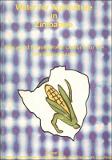| dc.contributor.author | Manzungu, Emmanuel | |
| dc.contributor.author | Senzanje, Aidan | |
| dc.contributor.author | van der Zaag, Peter | |
| dc.coverage.spatial | Zimbabwe. | en |
| dc.date.accessioned | 2016-06-17T10:42:06Z | |
| dc.date.available | 2016-06-17T10:42:06Z | |
| dc.date.issued | 2000 | |
| dc.identifier.citation | Manzungu, E. et al., (2000) Epilogue: a preview of Zimbabwe's new water law. In: Manzungu, E., Senzanje, A. and van der Zaag, P. (eds.) Water for agriculture in Zimbabwe: policy and management options for the smallholder sector, pp. 265-271. Harare: UZ., | en |
| dc.identifier.isbn | 0-908307-63-2 | |
| dc.identifier.uri | https://opendocs.ids.ac.uk/opendocs/handle/20.500.12413/11761 | |
| dc.description | An analysis of the proposed new Zimbabwe water legislation. | en |
| dc.description.abstract | The availability of these draft bills presents an opportunity to assess how the proposed water reforms articulate with the realities on the ground. Some of these realities were captured by the empirical material presented in the various chapters of this book. The articulation of the proposed changes with the realities on the ground cannot be overemphasized: it is there on the ground where the usefulness of the reforms will be tried and tested. In other words the realities on the ground are the perfect benchmark upon which to evaluate the reforms. We have no hesitation to forward the empirical material presented in the various chapters in this book for this purpose. The reason for this rather bold statement is simple: we are not aware of any collection of material in Zimbabwe that so adequately demonstrates the intricacies/controversies involving water, beginning from how water is generated up to its use in both rain-fed and irrigated agriculture and to some extent for domestic purposes (refer to Lovell et al chapter). As was said in the preface of the book, technical, social, political and legal issues are at play. What this book has demonstrated, and needs re-stating, is that it is not enough to recognize the technical, social, political and legal ramifications at play. The issue is how these are actually interlinked and interrelated in practice. Such an understanding allows informed intervention which can only be a positive thing. | en |
| dc.description.sponsorship | Special thanks are due to the Netherlands Organization for International Cooperation in Higher Education (NUFFIC), The Hague, for providing financial support towards the hosting of the workshop upon which this book is based. NUFFIC also met part of the publication costs. The two coordinating committees of the Zimbabwe Programme on Women, Extension, Sociology and Irrigation (ZIMWESI), a NUFFIC-funded inter-university exchange programme in research and training between the University of Zimbabwe and Wageningen Agricultural University deserve special mention for the moral support they gave us. | en |
| dc.language.iso | en | en |
| dc.publisher | University of Zimbabwe (UZ) Publications | en |
| dc.rights.uri | http://creativecommons.org/licenses/by-nc-nd/3.0/ | en |
| dc.subject | Development Policy | en |
| dc.subject | Governance | en |
| dc.subject | Water | en |
| dc.title | Epilogue: a preview of Zimbabwe's new water law | en |
| dc.type | Book chapter | en |
| dc.rights.holder | ©Emmanuel Manzungu, Aidan Senzanje, Pieter van der Zaag, 1999 | en |


